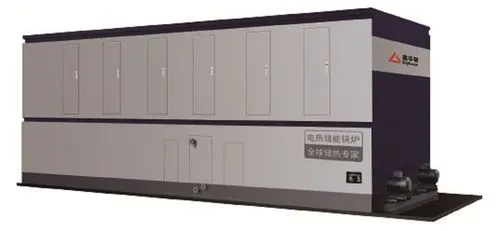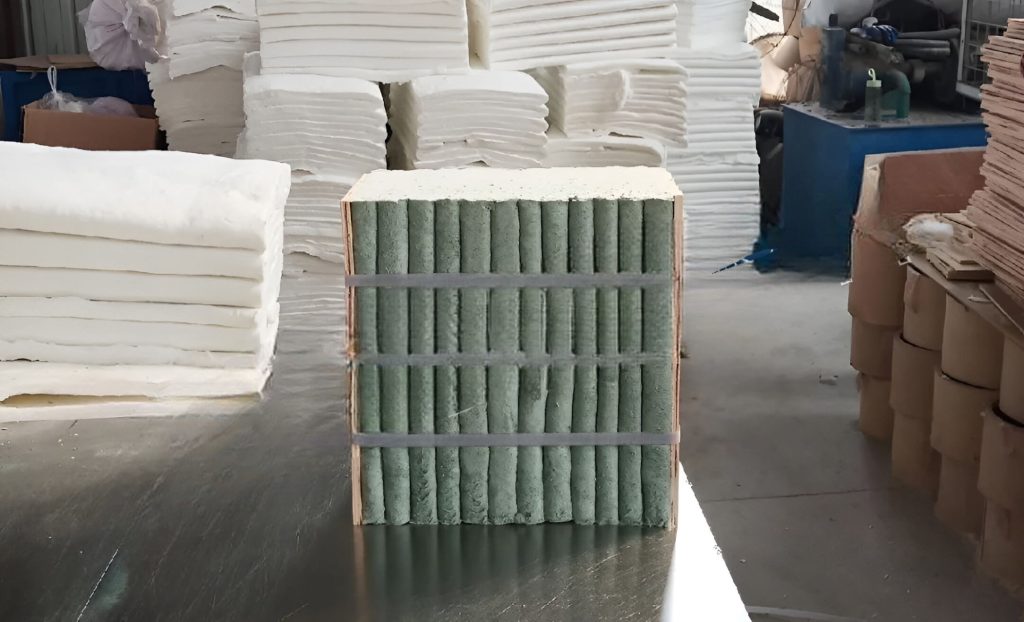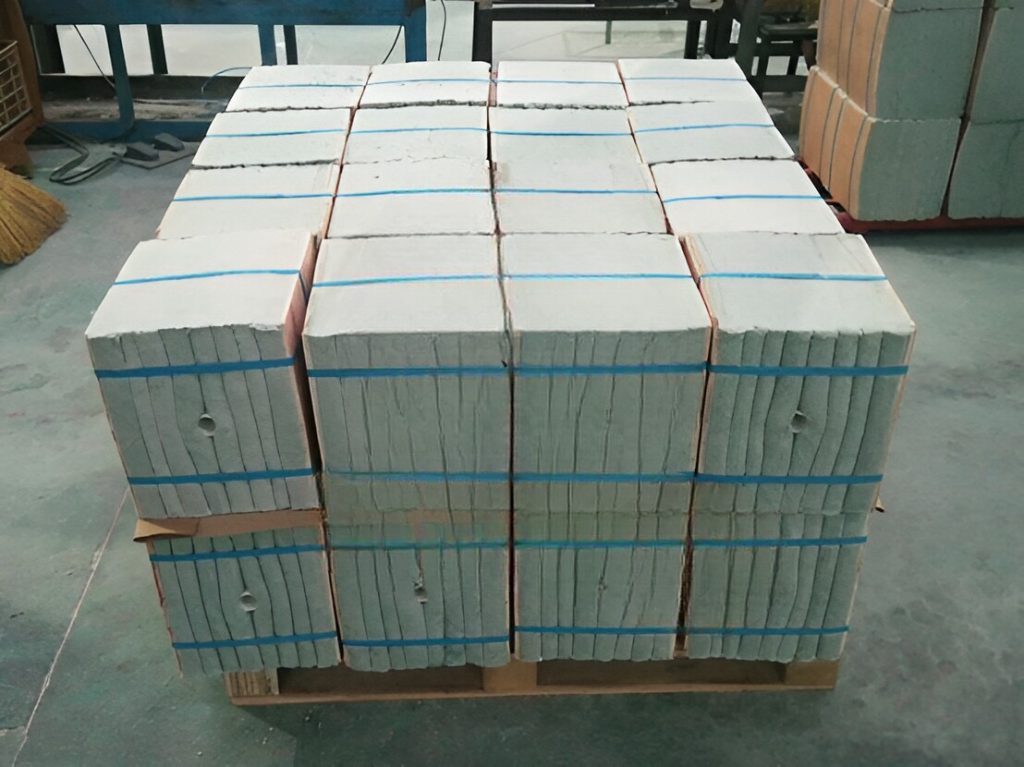Application of Ceramic Fiber Modules on Thermal Storage Electric Boilers
Table of Contents
I. Overview of Thermal Storage Electric Boilers

Thermal storage electric boilers utilize a heat storage material internally, with a small volume that allows intermittent supply of large amounts of heat. They can be used in different periods and situations, converting electrical energy into heat energy during low electricity consumption periods for storage and later use, following the principle of “charging during off-peak hours and discharging during peak hours.” Solid thermal storage electric boilers, of course, require excellent insulation materials, such as ceramic fiber modules.
II. Introduction of Anchor-Tech Ceramic Fiber Modules
Production Process
Classification of Ceramic Fiber Modules
Anchor-Tech ceramic fiber modules are classified based on temperature, ranging from 1260°C to 1500°C, into eight levels: standard, high purity, high alumina, zirconia alumina, zirconium-containing, chromium-containing, etc. This classification allows them to meet the insulation and thermal requirements of different parts and grades of thermal storage electric boilers.
III. Insulation Structure of Thermal Storage Electric Boilers
- Currently, ceramic fiber modules are commonly used for insulation in solid thermal storage electric boilers. The long-term usage temperature of ceramic fiber modules is around 1000°C, which meets the insulation performance requirements of current solid thermal storage electric boilers. Moreover, they have an extremely low thermal conductivity, ensuring excellent insulation.
- The internal insulation structure primarily involves the combination of ceramic fiber blankets and ceramic fiber modules. After production, ceramic fiber modules have inherent elasticity, and when installed, they compress against each other, forming a well-sealed space. Additionally, their low thermal conductivity and straightforward, quick construction make them lightweight and energy-efficient compared to traditional insulation materials. Therefore, this material is highly suitable for the insulation of electric boilers



